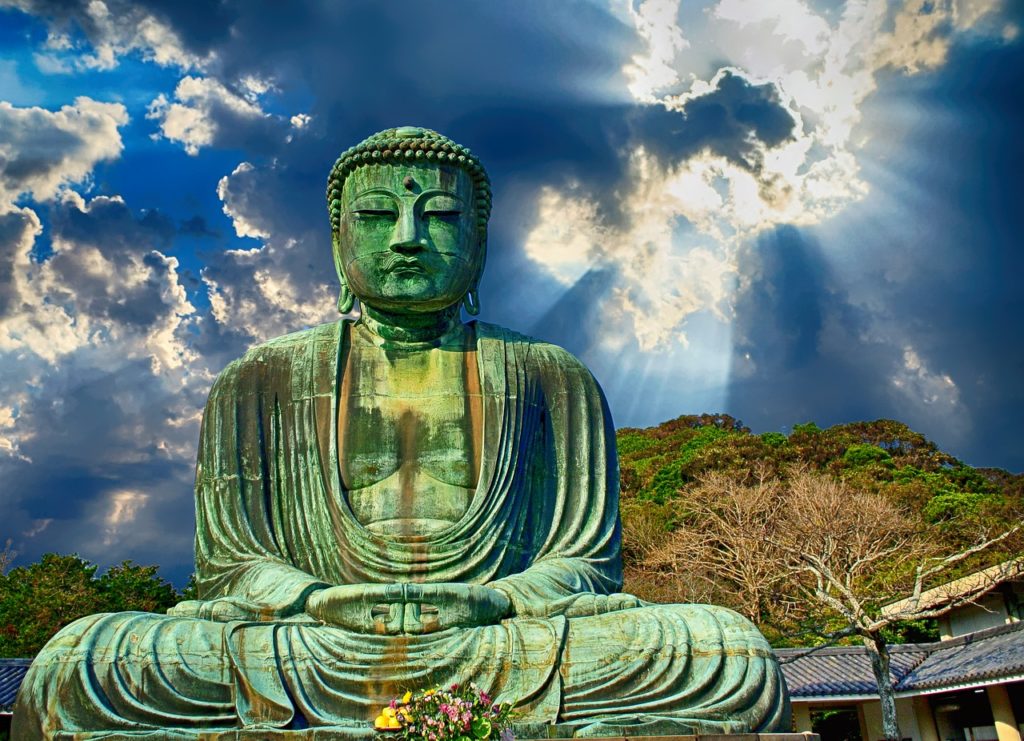How to practice Buddhism
Buddha comes from a very rich family before being an enlightenment and an icon for the Buddhist. He spent the rest of his life teaching the principles of Buddhism called Dhamma. Dhamma is both a religion and a way of life. The rules in this belief are very strict. It means Truth. He taught until his death at the age of 80. In this article, we will present the different stages of the practice of Buddhism.
What is Buddhism?
Buddhism is an oriental religion practiced by several countries in the Far East such as China, Vietnam, Thailand, Siberia and other surrounding countries. Nevertheless, it is currently spread all over the world. He is famous for his practices of meditation and belief of incarnation. The Buddha is an icon of the philosophy of Buddhism. It embodies the Asian and Us culture as well as the oriental custom. Buddhism explains a purpose of life, inequality and injustice.
This doctrine has been transmitted from generation to generation through oral teaching before it is now recorded. It is after many centuries after Buddha's death that texts on the Buddhist faith have existed. Indeed, Buddhism is one of the oldest religions in religious history.
Follow the Bodhisattva's vows to the letter
The Bodhisattva Vows are the most well-known and most recited daily series of vows in the Far East. Four in number, these vows can be found in many of the Mahayana's soûtras. They represent the essence of the Bodhisattva's ideal. They are also implicit in the ideal of the Bodhisattva as well as in Buddhism itself. The four great vows contain the spiritual aspirations of many people. It is also a public matter, part of a public reality.
It is important to know that everyone without exception suffers internally, whether they are rich or poor, beggars or import collectors. However, they suffer martyrdom on a daily basis because they are in search of happiness. Suffering is caused by envy and aversion. One is often exposed to temptation and malpractice on a daily basis. Every time we are in contact with others, we are exposed to other people who influence our thinking. We tend to conform, manipulate and alienate from the demands of others. However, according to the Bodhisattva's vows, it is possible to get out of this suffering if one decides to attain Nirvana and live a way of life according to the Noble Path. To seek happiness, one should not be discouraged. On the contrary, one must persevere.
According to the Bodhisattva's vows, it is necessary to attain Nirvana in order to have a life without suffering. Nirvana means the state of Buddha. It is the supreme goal of Buddhist meditation. It is quite possible to reach nirvana as long as one surpasses spiritual and bodily suffering. One must also open oneself to the world and explore knowledge and wisdom concepts. The goal is to know oneself and the world in order to avoid disturbing factors. These always lead to suffering that imprisons the spirit. To free oneself, therefore, one must detach oneself from material attachments and the desire for the pulpit.
Furthermore, practicing Buddhism also means continuing to learn. Education allows one to free oneself from this burden. When one knows and understands a little bit about life and the world, one knows how to act and how to do. One cannot make mistakes if one knows the causes and consequences of one's actions.

Respecting Buddhist precepts and commitments
According to Buddhist practice, there are commandments that must be obeyed. The first one is to avoid killing a living being whether it is a human being, an animal or even an insect. Everything that belongs to nature is sacred. In this case, it is forbidden to put an end to their life. The practice of Buddhism encourages to love creatures and to avoid any form of violence against them. It is because of respect for the lives of living creatures that most Buddhists have become vegetarians. According to the Buddhist faith, actions of deviation from these precepts are not condemned, but the consequences will be attributed to the afterlife.
The prohibition of flying is also one of the pillars of the Buddhist precept. It is strongly forbidden to take anything that does not belong to oneself from food. One must resist the temptation and the desire to possess something that belongs to others by force. Abstaining is therefore a Buddhist way of life.
Furthermore, the manipulation and exploitation of others is also a taboo for Buddhist belief. This applies to all forms of exploitation whether physical, sexual or sentimental. Any relationship with a person must be consensual and with respect for the other. The practice of Buddhism does not mean or require abstinence. It only requires having self-control and being aware of all acts and actions of self towards all emotional relationships. It is obvious that the Buddhist teaching prohibits all forms of perversion and adultery. It does, however, encourage simplicity in relationships, honesty and sincerity.
The Buddhist religion encourages practitioners to always be honest with themselves and with others. Holding false speech or false testimony is a sacrilege in the practice of Buddhism. This means that one should not lie at all when aspiring to follow this religion.
The last rule of life of a Buddhist is the prohibition of the consumption of psychotropic products. These substances are drugs, alcohol, tobacco and hallucinogenic products. The use of these toxic substances affects mindfulness and can disturb the mind. Often, addicts are not in control of their decision. These products make them suffer and commit thoughtless acts such as violence, theft and scams.
Mastering the practice of Buddhism through its teachings
In the practice of Buddhism, there are teachings to help each person to know how his or her mind works. It is up to each person to find the pedagogy with the corresponding teachings and meditations that will help him or her move forward. This step is very important to not do just anything in life. The first teaching is to take karma into consideration. The latter is a law of cause and effect like the concept of determinism. Buddhist philosophy believes that every cause has a consequence and a consequence has a cause. This means that past actions determine future lives. Therefore, one must be aware of the cause before acting or making an important decision. Karma leads according to the Buddhist belief in samsara. Indeed, it is actions that determine the condition to come. Hence the need for pure moral conduct in order to have good karma and be reborn in a higher condition or reach nirvana, if one has stripped oneself of all bad karma. On the other hand, if one does good deeds, one can be sure to have peace of mind. They also provide well-being.
Believe in samsara
In the Buddhist religion, there are habits and customs that every Buddha must follow. In the practice of Buddhism, it is therefore necessary to believe in its beliefs, including samsara which is called reincarnation in the West. Samsara defines a belief in the vicious circle of human life. It concerns the incarnation and rebirth of men after death. It is an infinite cycle where Man suffers constantly and indefinitely, because he is connected to samsara. No one can escape his samsara. According to Buddhist belief, it is under the tree of enlightenment that Buddha becomes aware of samsara. He was remembering his past lives.
It should be noted that samsara has as its essence emptiness, as its property suffering and as its aspect contempt.

Respecting nature
If one wants to practice Buddhism, an individual must live humbly while respecting nature. Humility is undoubtedly the fundamental value of Buddhist practice. A person according to this religion must accept what he is and resign himself. He must explore wisdom and knowledge a little more than material wealth and power.
Reaching the Middle Way is also part of the Buddhist precepts. It is a very particular teaching which makes it possible to the practitioner of the Buddhist to preserve himself from exaggeration and the extreme. According to the Buddhist belief, only the middle way is the path to happiness. It is also the way for the cessation of misery and suffering.
Practicing Buddhism through meditation
In the Buddhist religion, each person must do meditation for the stability of mind, spirit and body. This technique consists of calming down and getting in the right frame when faced with a difficult or problematic situation. It aims to calm the mind and to center oneself in one's body. Its advantage is to provide peace in itself. In this way, one can effectively carry out daily responsibilities. Meditation would also be an effective method of concentration. It is based on breathing, which is considered to be the pillar of meditation and the majority of means of relaxation. Breathing is excellent for reducing negative thoughts that disturb the mind. By focusing on this breathing, we can occupy the brain by focusing it on something calm.
Buddhist meditation also brings many benefits for the person who practices it, notably on his personal development, his mind, his body, his health in general, but also on his relational aspects. It is considered to be one of the best solutions to eliminate all forms of constraints, to release accumulated stress, to promote positive experiences and intentions. Then, during this practice, one can enjoy the maximum peace of mind.
Thereafter, this type of practice also allows to lower blood pressure and hypertension, lower cholesterol levels, reduce the production of stress hormones, improve immune function and decrease anxiety, depression and insomnia. This is the physiological and psychological benefit of this type of meditation.
In addition, mediation improves memory capacity and the ability to learn. Indeed, it is an effective process for awakening new neuronal connections and even transforming brain regions.

Learn to always calm down
To be able to practice Buddhism, one should also learn to manage one's emotions, to know oneself better and to gain serenity. In order to achieve this, a few rules must be respected. As human beings tend to follow social rules, the constraints established by society, the individual must learn to detach and let go of the real world inside. This is useful to lighten consciousness a little and nourish freedom. Then, during this time of lightening, it is necessary to concentrate a little more on one's path and goals in life. According to the Buddhist belief, everyone has at least one talent and competence in one thing. The goal is to optimize one's personal faculty by trying to express the strength of one's thoughts. Moreover, each talent has unique needs corresponding to creative expression. This is what gives meaning to life.
One of the rules to be considered in Buddhist learning is to also believe in the existence of a spiritual life as well as the fundamental value of the mind. With such a vision of life, one can already appreciate what one has by expressing love easily to others.
Taking time to rest in silence to have access to inner dialogue with oneself is part of the first practice of Buddhist meditation. It consists of letting go of the burden of consciousness and rising into a metaphysical life, while of course respecting the rules of Buddhist belief and practice.


